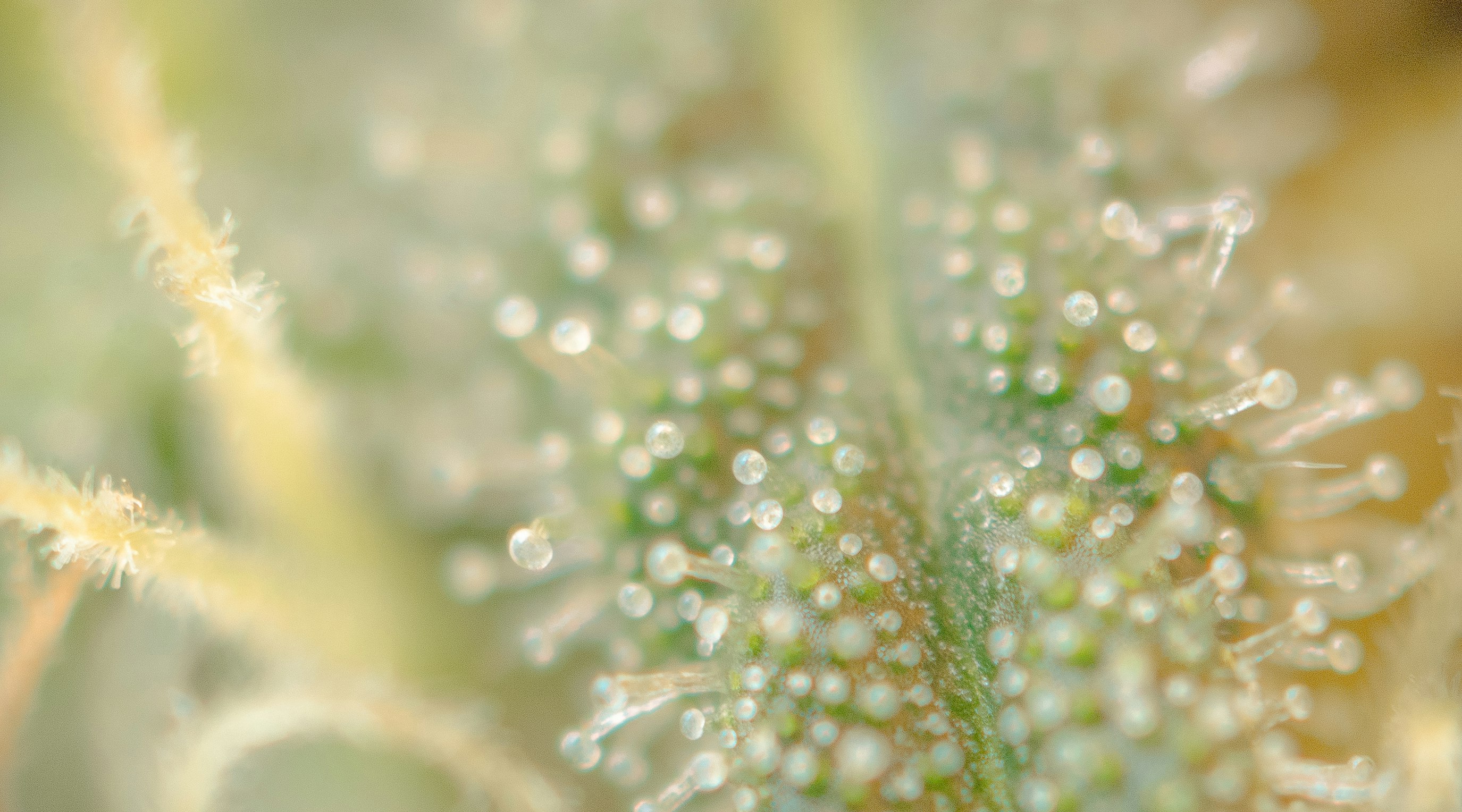THC has been studied quite thoroughly since the 1960s. Since this time, over 31,700 studies have been conducted to test its safety and efficacy. Research into the exact therapeutic benefits that THC may offer is still underway, but there have been significant papers published looking into the relationship between both THC and major health conditions, and also the functional systems within the human body.
The chances of fatally overdosing on cannabis are incredibly slim. It is considered to be impossible for anyone to come to serious harm on the amount of THC that would be prescribed by a licensed specialist in the UK.
The Lethal Dose Rating, or LD50 as it is more commonly referred to, is a rating given to all substances to determine at which dosage level would be fatal for 50% of patients, and it is carried out in animal models. The LD50 of cannabis was determined to be around one third of the person's body weight, administered in one single dose.
Cannabinoids, like THC, mimic naturally occurring neurotransmitters that everyone has inside of them. THC interacts similarly to one called anandamide, named after the Sanskrit word for “bliss”. These neurotransmitters send different messages at different points around the body to carry out specific biological tasks and functions.
The name for these specific neurotransmitters that are similar to ones found in cannabis are called endocannabinoids. Both our own endocannabinoids, and the (phyto) cannabinoids produce by cannabis, bind at cannabinoid receptor sites. THC and Anandamide have a high affinity for binding to the receptor dubbed CB1. Endocannabinoids act on the endocannabinoid system, which governs all other major biological systems in the body. This advanced network evolved in humans' ancestors around 550 million years ago, and is found in all other animals.
As you can see, humans have a biological system that is capable of processing different cannabinoids. It is thought that cannabis was one of the first three crops to be domesticated by humans and cultivated on an agricultural scale. In fact, the world's oldest medical books and pharmacopoeias dating back nearly 6,000 years list cannabis as an essential medicine. From Ancient Greece to China, many of the medical conditions that cannabis is prescribed for now were documented as being treated with cannabis.
How much THC oil should I consume?
You should always take the amount of THC oil that you have been prescribed by your specialist. If you feel like you are not getting the symptomatic relief you expected, it may be because you are not taking a strong enough dose. If this is the case, before simply upping the dose yourself, you should discuss this with your doctor in order to decide the best course of action. Some people have a naturally higher tolerance to THC.
The potential benefits of taking THC oil as a medicine
Cannabis oil as a medicine offers potential pain and symptom relief for a wide range of health issues. For the vast majority of patients, it does not come with serious long-term negative side effects that impact the quality of life. This is simply not the case with many conventional pharmaceuticals. THC also has a low number of negative interactions with conventional pharmaceuticals, but let's quickly look at this subject.
Drug interactions with THC to be aware of
If you are taking other medications as well as THC, it is always recommended that you check with your prescribing doctor to ensure there will be no negative interactions.
Medications that interact with the P450 cytochrome will have a possible interaction with THC and CBD. THC is also metabolised by the liver enzyme CYP2C9 and inhibitors of this enzyme such as fluoxetine, cotrimoxazole, and amiodarone can increase the psychoactive effects of THC. Other similar effects may be noticed with CYP3A4 inhibitors like macrolides and verapamil. THC can also lower insulin resistance, meaning you may need to up your dose of insulin just slightly when using medicinal cannabis, so be sure to monitor this if you are diabetic.
Positive effects of taking THC oil for symptom relief
Besides the actual symptom relief that THC provides to patients, other positive side effects that are reported are improved sleep, better appetite, weight gain in patients with eating disorders or wasting syndromes, increased mobility, happiness, higher levels of relaxation and less stress.
Many patients report that they do not feel the traditional high associated with THC when using THC oil at the prescribed dose. The idea behind administering THC oil for symptomatic relief isn't to feel the intoxicating effects, but to unlock the potential therapeutic benefits. This may be done at lower dosages than required for intoxication. Some patients report that they feel more able to get on with daily tasks and activities than they would if they weren’t fighting the symptoms of a medical condition.
Potential negative effects of taking THC oil
Some patients report not having the most enjoyable first experience with THC oil, and this can be normal – especially if they have never taken cannabis before. There are ways to go about trying to improve the chances of not having a negative experience.
Make sure you are in a safe environment and enjoyable setting. It is never recommended that new patients take THC oil for the first time in a place that they are uncomfortable or unfamiliar with. Some people report feeling disoriented when they first administer THC oil, and being somewhere that is familiar can be of huge benefit.
Having a sugary snack or drink at hand is a good idea. THC can cause your blood glucose levels to drop quite rapidly, so if you are diabetic, you should definitely monitor your glucose levels. It is also advised that you have someone with you that you are comfortable with, and that can help should your insulin levels drop too low.
Too much THC can result in dizziness, spinning feelings, nausea, vomiting, uncontrollable giggles, racing thoughts, hallucinations, memory loss, confusion, extreme hunger, dry mouth, fatigue, lethargy, loss of balance, reduced ability to communicate, and general confusion. It is important to remember that all of these symptoms will subside after between two and six hours, but residual effects may last several days. If you take a high dose of THC just before bed, you may wake up feeling groggy, and that feeling can last for the entire next day. No long-term health risks can be caused by taking too much THC, unless interacting with another drug as listed above.
In the worst of cases, THC oil can induce tachycardia, increase cardiac labour, systemic vasodilation, and an increase in blood pressure. There can be more severe effects in people who already have an existing heart condition, and it is advised not to take THC based medications in these instances. Angina, myocardial infarction, cardiac death, and cardiomyopathy are at greater risk when taking THC if you suffer from pre-existing cardiovascular conditions.
What to do if I’ve had too much THC oil
If you have found yourself taking too much THC, there are a few things you can do to help reduce the negative side effects and symptoms.
As THC lowers your blood glucose level, it can be helpful to have a sugary drink or snack at hand. Caffeine is also known to be helpful in making you feel less fatigued or lethargic after THC oil. Take it easy, relax, and don’t do too much. Some people find music helps, or a familiar TV show or film. Some people like to be in a quiet dark space, others might like a friend or loved one close by or even want physical contact. Meditation and breathing exercises can be employed to help reduce any anxious feelings that may pop up, as well as helping slow the heart rate,
Just remember, this won’t happen every time you take THC oil, your body just needs to adjust to it. Starting on a low dose and gradually building up is the best way to go about introducing THC oil as a medicine and when done this way, very rarely produces a negative outcome.
CBD oil may also be a very helpful aid in reducing the unwanted side effects of THC oil.
Conclusion
THC oil may be a beneficial medicinal option for treating many conditions and symptoms. It is important to ensure that the correct dose is taken, and that any pharmaceutical drugs you are taking do not interact with THC, before you begin treatment. Also note that it is possible to take too much THC oil, which can result in unwanted side effects. However, starting off on a low dose and slowly increasing to the prescribed dosage level will help to reduce the risk of having a negative experience.
If medicinal cannabis is of interest to you, reach out to us here at Releaf. We offer an all-in-one medical cannabis platform to help you understand the effects, benefits and potential risks of using THC oil for symptom relief.





